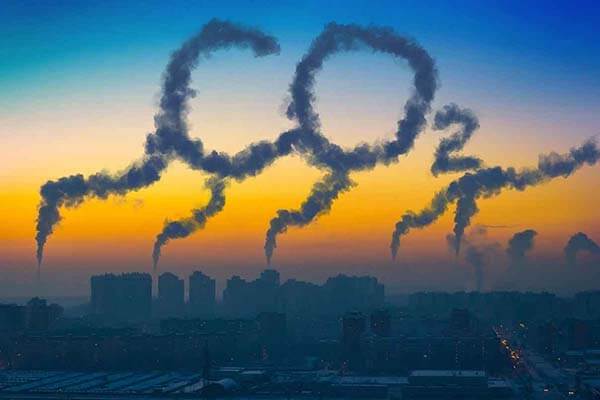
Carbon emissions play a critical role in the ongoing global concern of climate change. Here are several reasons why we should care about carbon emissions:
-
Climate Change: Carbon emissions, primarily in the form of carbon dioxide (CO2), are the primary driver of climate change. Excessive emissions contribute to the greenhouse effect, trapping heat in the Earth's atmosphere and causing a rise in global temperatures. This leads to a wide range of detrimental impacts, including more frequent and severe heatwaves, droughts, storms, and rising sea levels.
-
Environmental Impact: Carbon emissions are closely linked to other environmental issues such as air pollution and deforestation. High levels of CO2 and other greenhouse gases can contribute to poor air quality and health problems, including respiratory diseases. Moreover, deforestation, often associated with carbon emissions, reduces the Earth's capacity to absorb CO2 through photosynthesis.
-
Biodiversity Loss: Climate change, driven by carbon emissions, poses a significant threat to global biodiversity. Rising temperatures and changing weather patterns can disrupt ecosystems, leading to species extinction, loss of habitat, and imbalances in natural communities. This loss of biodiversity has far-reaching consequences for the health and stability of ecosystems and the services they provide, such as pollination, water purification, and nutrient cycling.
-
Human Health: Climate change affects human health in various ways. Extreme weather events caused by carbon emissions, such as hurricanes and floods, can result in injuries, deaths, and displacement of populations. Additionally, changing climate patterns can impact agricultural productivity, leading to food scarcity and malnutrition. Increased heatwaves and heat-related illnesses are another concern, particularly for vulnerable populations such as the elderly and those with pre-existing health conditions.
-
Economic Implications: The economic costs of climate change are substantial. Extreme weather events, damage to infrastructure, and disruptions to agriculture and water resources can lead to significant economic losses. The transition to a low-carbon economy also presents economic opportunities, such as the development of renewable energy technologies, job creation, and improved energy efficiency.
-
International Cooperation: Addressing carbon emissions requires global cooperation. Climate change is a transnational issue that affects all countries, and coordinated efforts are necessary to mitigate its impacts. By reducing carbon emissions, countries can work together to protect the planet and create a more sustainable future.
-
Ethical Responsibility: Carbon emissions disproportionately impact vulnerable populations, including those in developing countries who have contributed less to the problem. Taking action to reduce emissions is a matter of ethical responsibility, ensuring a more equitable and just future for all.
Given these reasons, caring about carbon emissions is crucial for the well-being of our planet, the sustainability of ecosystems, the health of current and future generations, and the stability of global economies. It requires collective action and individual choices to reduce emissions, transition to cleaner energy sources, and pursue sustainable practices.
What about Quinoa vs rice carbon emissions?
Traditional rice cultivation, particularly in flooded paddy fields, can produce methane (a potent greenhouse gas) due to anaerobic decomposition. Quinoa, on the other hand, is typically cultivated in non-flooded conditions, which generally results in lower methane emissions.
Also, rice requires more land, water, and inputs compared to quinoa. Quinoa is a drought-tolerant crop and can grow in more arid conditions, requiring less water and land resources.
Find out how we offset our carbon emissions here
